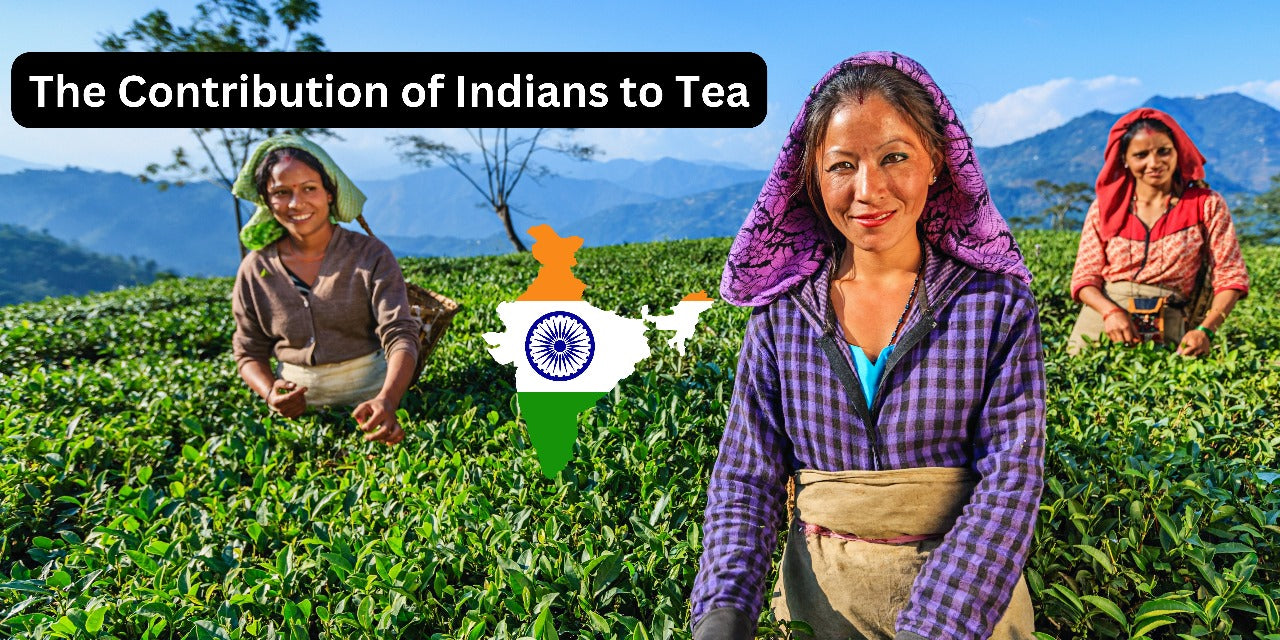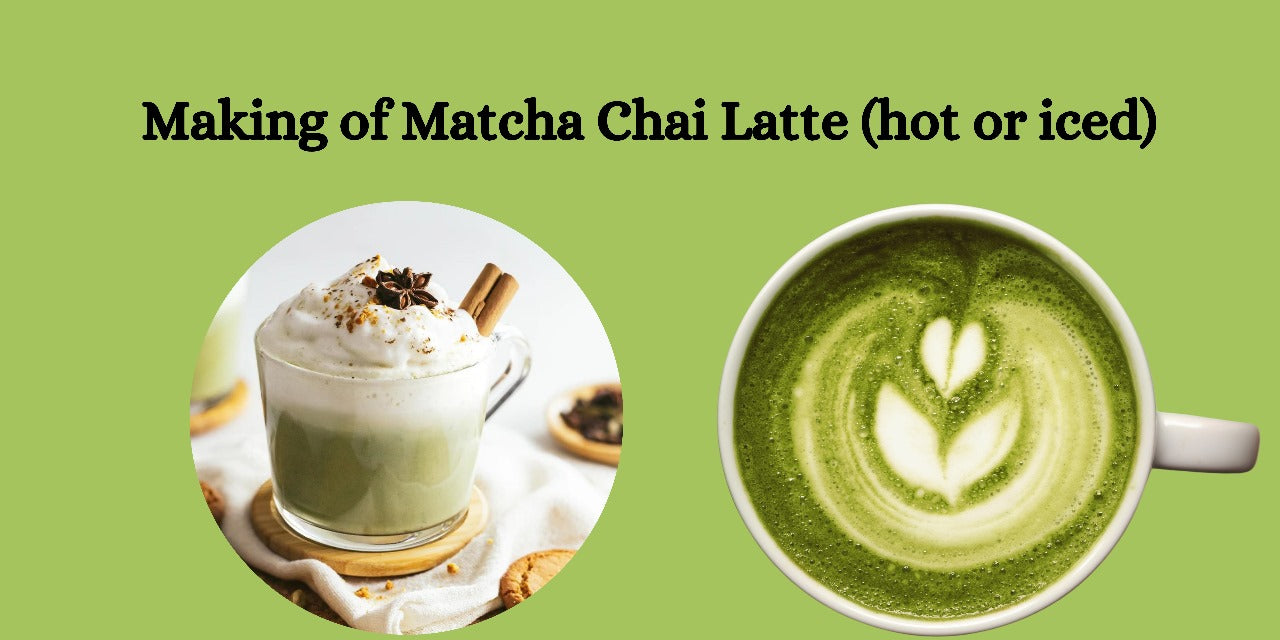Introduction
Tea, with its beauty, comfort, and warmth, has become a beloved beverage for many. However, it is important to recognize and address the environmental impact that tea production has on our planet. At Uphaar Tea, we value the flavors and traditions of tea, as well as the responsible and sustainable choices that ensure a brighter future for our environment. In this article, we will explore the challenges faced by the tea industry and how we can all contribute to a sustainable and ethical tea experience. Let's delve into the world of tea production and discover how we can make informed and responsible decisions when choosing our favorite brew.
Environmental Challenges in Tea Production
The tea industry, like many agricultural sectors, faces numerous environmental challenges that threaten the health of our planet. These challenges include deforestation, water pollution, soil erosion, and the loss of biodiversity. The well-being of local communities who depend on the tea industry for their livelihoods is also at stake. It is crucial to understand these challenges to make informed decisions and promote positive change.
Deforestation
One of the major environmental challenges in tea production is deforestation. Clearing land for tea plantations contributes to the loss of forests, which in turn threatens ecosystems and contributes to climate change. Sustainable tea producers focusing on reforestation and environmentally-friendly agricultural practices contribute to the overall health of ecosystems and help address environmental challenges. By supporting these sustainable practices, we can help protect the world's forests and the diverse species that depend on them.
Water Usage and Pollution
The process of cultivating tea demands substantial water resources, and inadequate water management can result in the pollution of water sources with pesticides and chemical fertilizers. This not only affects the quality of the tea but also poses a threat to aquatic ecosystems and the communities that rely on clean water sources. Sustainable tea farming practices prioritize efficient water usage and employ organic farming methods to minimize pollution. By choosing teas from producers who prioritize water conservation and responsible farming practices, we can contribute to the preservation of water resources.
Soil Erosion and Degradation
Tea cultivation, particularly on slopes, can result in soil erosion and nutrient depletion. This can have long-lasting effects on the productivity and health of the soil. Engaging in sustainable practices, like implementing soil conservation techniques and adopting organic fertilization, aids in preserving and restoring soil quality. By supporting tea producers who prioritize soil health and employ sustainable farming methods, we can ensure the long-term sustainability of tea production.
Labor and Social Challenges
The tea industry heavily depends on manual labor, which can lead to inadequate working conditions and the exploitation of workers. This is a significant social challenge faced by the industry. Ethical tea production emphasizes fair labor practices, living wages, and ensuring safe working conditions for tea workers. By choosing teas that are certified as ethically produced, such as those with Fair Trade certification, we can actively support the well-being of tea workers and contribute to a more sustainable and equitable tea industry.
Certifications Promoting Sustainability and Ethics in the Tea Industry
Several organizations and certifications have been established to support sustainable practices and fair labor within the tea industry. These certifications ensure that tea producers adhere to ethical and environmentally responsible production methods. By choosing teas with these certifications, we can actively contribute to a more sustainable tea industry.
Rainforest Alliance
The Rainforest Alliance certification advocates for sustainable farming practices that preserve ecosystems, safeguard wildlife, and uphold worker welfare. Tea producers with this certification follow strict guidelines to minimize their environmental impact and ensure the well-being of their workers. By choosing teas with the Rainforest Alliance certification, we can support the preservation of biodiversity and the livelihoods of tea workers.
Fair Trade
Fair Trade certification guarantees that tea producers uphold ethical labor practices, provide safe working conditions, and receive a fair price for their products. This certification is particularly important in addressing the social challenges the tea industry faces. By choosing Fair Trade certified teas, we can support the empowerment of tea workers and contribute to a more just and equitable tea industry.
Organic Certification
Opting for organic certification ensures that the tea is cultivated without the use of synthetic pesticides, fertilizers, or genetically modified organisms. This ensures a more sustainable product that is free from harmful chemicals. Choosing organic teas not only supports environmentally friendly farming practices but also promotes the consumption of healthier and safer products.
Tips for Choosing Sustainable and Ethical Tea
Each of us can make a positive impact by choosing sustainable and ethical tea options. Here are some tips to help you make informed choices when selecting your next cup:
Check for Certifications: Opt for tea brands and products with recognized environmental and ethical certifications like Rainforest Alliance, Fair Trade, or Organic Certification. These certifications ensure that production methods align with sustainability and fair labor standards.
Buy Loose Leaf Tea: Opt for loose leaf tea whenever possible. Loose leaf tea typically has a smaller environmental impact, as it involves less packaging and processing compared to bagged tea. It can also be of higher quality, resulting in a better tea experience.
Support Small, Transparent Producers: Consider supporting small tea growers and brands that prioritize transparent, sustainable practices. These enterprises often genuinely prioritize environmental sustainability and community well-being, providing a more conscientious tea experience.
Educate Yourself and Others: Gain knowledge about sustainable tea practices and share this information with friends and family. Engaging in informed discussions about the environmental impact of tea production allows us to collectively choose more sustainable and ethical options.
Committing to a Sustainable Tea Future
Navigating the world of tea comes with environmental challenges, and it's our responsibility to address them. Choosing sustainable and ethical teas reflects a conscious effort to support responsible stewardship of our planet's resources and the well-being of tea communities. Let's embrace sustainable practices, deepen our understanding of the tea-environment connection, and work towards a brighter, more sustainable tea future.




